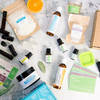Meeting the Early Childhood Psychologist: Starting the Process to Get into the School's Special Education Program

We've suspected for some time now that Froot Loop has some sort of issue(s) that require Early Childhood Intervention. He has several red flags of ASD (Autism Spectrum Disorder) and sensory processing and behavior issues. So, we started talking to our local elementary school about what we need to do to get him checked out and assessed. Several emails later, and today we had our first meeting with the elementary school child psychologist.
The meeting went well. We went over our concerns with her and she asked lots of questions. I am certified to teach Special Education in Texas (I did not end up obtaining my Teaching License... long story), so I did know a lot of the terminology. Thank goodness, because our first meeting was still pretty overwhelming. It's never fun to have to attend an early intervention assessment meeting.
The boys stayed home and enjoyed naps and quiet time while Gramma was here. So it was just Honey Graham and me.
We awkwardly started the meeting with the child psychologist. I don't know about Honey Graham, but I was fairly nervous. All of a sudden, all of our suspected issues with our little boy didn't seem like that big of a deal (even though they really are.) We talked through everything and then had lots of forms to sign. These are the federally mandated forms to allow for the assessment to take place. They also needed a medical release form to obtain his medical records. We filled out an initial overview form too.
One of the forms we filled out was the Consent for Assessment/Evaluation. It asks about the following:
- Being fully informed and understanding the assessment and evaluation process and why it is being recommended
- Permission for the actual testing. The consent is voluntary and may be revoked at any time. Of course, revocation is not retroactive.
- Waiving the 5 school days notice before testing can occur (not really applicable to us)
- Received the Notice of Procedural Safeguards for Special Education
- Being informed of the evaluation in our native language
- Being informed that once all evaluation is complete, all test protocols are destroyed in 3 years.
The other form we brought home was our copy of the Notice of Assessment/Evaluation.
This says that the child's records have been reviewed, including educational/sociological information, but more information is needed to determine the needs and to plan an appropriate program. It says that they plan on doing an assessment because of:
1) Parent Request, and 2) Determine Eligibility for Special Education.
There's a bunch of boxes that can be checked about why they decided to test the child. These include
- test scores
- grades
- discipline records
- observations
- reevaluation, and
- other (ours says parent information since he is only three and has no records!)
The next section is about options considered before doing this assessment, and once again, none apply to us since our little guy has no general education options because of his age. He needs a formal evaluation to determine his eligibility. The other options on the form are:
- regular education with modifications
- basic classes
- Title I programs
- bilingual/ESL
- local remediation
- no options considered
- reevaluation, and
-other
Then it says that they want to test in the areas checked below.
- Language, including speeech and language skills, voice and fluency
- Physical, meaning health history, medical reports, hearing tests, vision tests, motor tests, medical exam, etc.
- Emotional/Behavioral, meaning social and emotional adjustment and interpersonal relationships
- Sociological, or a parent interview/questionaire (this was sent home with us)
- Intellectual/Adaptive Behavior, meaning development in verbal abilities, and/or nonverbal abilities and adaptive social behavior
- Educational Learning Competencies, which is achievement tests, observations, etc.
- Adaptive/Assistive Technology, where they collect information from teachers, providers, etc. and
- Vocational Assessment, or an assessment given to the child. This is for high school students.
So, we have all the boxes except for Vocational checked. Froot Loop is going to have a full assessment.
We got two packets of information. The first is the Parent's Guide to the Admission, Review, and Dismissal Process (ARD). This is based on the Individuals with Disabilities Education Act of 2004 (IDEA). One of the reasons IDEA was created was to ensure that all children with disabilities have a free appropriate public education (FAPE) to meet their unique needs and prep them for further education, employment, and independent living.
In our state (TEXAS), a child's eligibility for special education and their program are made by an ARD committee, or an individulaized education program (IEP) team. This usually consists of the principal, a representative of the school, a special education teacher, a regular education teacher, the parents, an interpreter of the evaluation results (like a child psychologist), other individuals who have expertise about the child and are invited, and sometimes, the child. This team meets and discusses the best education plans for the child and any special needs they might need.
There are tons of rules and laws about ARD meetings, and I am not going to get into them right now. We will discuss those at a later date if needed.
There's a two part test for determining eligibility for these services. The child (between the ages of 3 and 21) must have a disability and as a result of that disability, the child must need special education and related services to benefit from education. The areas of eligibility are:
- auditory impairment from birth
- autism
- deaf-blindness from birth
- emotional disturbance
- intellectual disability
- multiple disabilities
- noncategorical early childhood (ages three through five)
- orthopedic impairment
- other health impairment
- specific learning disability
- speech or language impairment
- traumatic brain injury, or
- visual impairment including blindness from birth
We are exploring the areas of autism, noncategorical (since he's too young to really have a learning disability), and speech/language development.
If he qualifies for special education services, then our school must give him a FAPE in the least restrictive environment. This is done through the IEP, or Individualized Education Plan. The IEP includes:
- Child's present levels of academic achievement and functional performance (PLAAFP) In our case, our PLAAFP must include how the disability affects involvement/participation in age-appropriate activities.
- annual goals
- description of the special education, related services, and supplementary aids/services being provided
- info about how the child will participate in state and district assessments
- transition services (for older students), and
- other areas
This is where the ARD committee considers the strengths, concerns, evaluation results, and academic, developmental, and function needs of the child.
For children with autism, there's 11 strategies that must be considered in the IEP. These include
- extended educational programming
- daily schedules reflecting minimal unstructured time
- in-home and community-based training or viable alternatives
- positive behavior support strategies
- futures planning
- parent/family training and support
- suitable staff-to-child ratio appropriate to identified activities
- communication interventions
- professional educator/staff support, and
- teaching strategies based on peer-reviewed, research-based practices.
There's a ton more information in this packet, and most of it can be researched online. Fortunately I know most of this through my training, otherwise I'd be extremely overwhelmed right now.
The other handout we have is the Notice of Procedural Safeguards. I babbled long enough about ARDs and IEPs so I'm not going to summarize this one right now.
We also got two assessments to do for Froot Loop. The first was the Adaptive Behavior Assessment System for ages 0-5. This one covers Communication, Community Use, Functional Pre-Academics, Home Living, Health and Safety, Leisure, Self-Care, Self-Direction, Social, and Motor areas.
The next one is the Autism Spectrum assessment for children 2-5. I had a tough time with this one. After filling it out, we peeked at the results and in almost every category, Froot Loop scored extremely high. This made me freak out, and I know I shouldn't because 1) this really shouldn't be a surprise, 2) it's just a parent assessment, and 3) this is why we are doing this assessment in the first place! Plus, I'm interpreting the results myself, and not through someone who actually knows what they're talking about.
Froot Loop has had a lot of the red flags of autism for a long time now. I really shouldn't be as upset as I am. I mean, I'm not thrilled by any means that he's likely on the spectrum, but I didn't expect it to be as clear as day on that particular results page. I really should just wait and see what the experts say.
Well, this post was very long and babbly. I needed to get a lot of this off of my chest and I feel a little bit better getting it out there. Please bear with me as we go through this process. I will be taking you with me. Our next step is the long parent-driven assessment next month. After that, we do the child assessment and testing.
Have any of you been through this?



















Comments